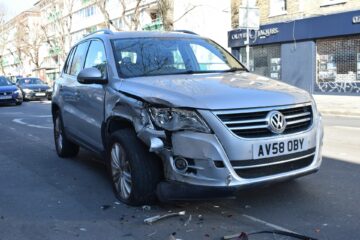Motorcycle accidents can be stressful and chaotic. When all hell breaks loose, it becomes necessary to note key particulars. You want to get the information as soon as possible to ensure everything is caught. This guide offers guidelines outlining how to record essential details after a motorcycle accident.
Assessing the Scene
Safety is priority no. 1 right after an accident. Once you are safe, you need to observe the situation. Take a look around to see the big picture. Note the place, time, and weather. These factors can all be vital in identifying how the incident happened. Mentally note any obvious threats to safety. Getting legal guidance for motorcycle accidents Pittsburgh can help.
Gathering Information About the Accident
You should start by gathering personal information on all the people involved. That includes identifiers like names, telephone numbers, and addresses. Also, make note of the year, make, and model of each vehicle involved. It is also a good idea to take pictures of the number plates. If they have any witnesses, also collect their contact information. Accounts that they be of use later on.
Photographic Evidence
Photographs serve as powerful evidence. Take Photos of the Accident Scene From Different Angles. Make sure to include the road condition, traffic signs, and any skid marks. Take pictures of the vehicle damage and visible injuries. These photos will serve as a snapshot of the events to reference at a later date.
Detailed Notes
Detailed note-taking can help a lot. Always make your notes on what happened while the facts are still fresh. Add the timeline before the crash. Look for any conversation that you overheard, including the actions of any people involved. Such observations are often critical for insurance claims or legal processes.
Medical Documentation
Even if you have no serious injury, you should seek medical attention—document medical examinations in detail. Get copies of your medical reports and any treatment you received. Document any symptoms that arise in the days after the accident. These records are vital if any issues should crop up later on.
Insurance and Legal Contacts
Contact insurance providers promptly. Share any other facts you have to collect, including photos and contacts for potential witnesses. If you do that, make sure you write down the names of the representatives you spoke to, as well as the dates of those conversations. Seek the counsel of a legal professional who can help you realize the options available to you.
Preserving Evidence
Store all collected information safely. To avoid loss, make both a physical and a digital copy. These documents need to be organized in a way that they are reachable and readable. This preparation will guarantee easy recovery when required for insurance or legal functions.
Reflecting on Emotional Impact
The emotional impact of accidents can be huge. It is beneficial to write down how we felt and what we were thinking as this happened. It helps in processing the experience, and this may come in handy if psychological support is needed later. Writing your feelings down from time to time can also be a great way to gain some perspective over time.
Seeking Support
Calling a friend or asking a support group can help. Having someone to share experiences helps alleviate emotional burdens and gives comfort. Support networks provide the opportunity for advice and commiseration. They may also assist people in recovery.
Conclusion
Motorcycle accidents are chaotic moments, devoid of witnesses, where things can go wrong and witnesses are not in sight; it is important to take details down for future reference. These are the steps they will take to leave behind confirmation of events. By preparing for a future loss, grief management becomes more manageable, not just in legal and insurance matters but also in the emotional sense. But if you take swift action and keep everything in order, it can be very helpful after the accident.












